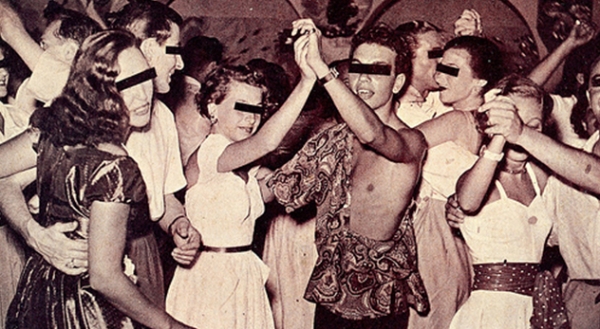To my knowledge, I’ve been on one formal date in my life—and I say “formal date” in the movie-and-dinner, Gilmore Girls sense of the word. It was July in Toronto, and I met him at a midtown pub. I was sweaty, because July in Toronto is sweaty, but he told me I looked pretty anyway. It was a pleasant, if underwhelming, experience.
The plot twist didn’t come until the end of the night, when he turned to me and asked, point blank, “When will I see you again?”
I was taken aback. When would he see me again? ‘Til that point, I’d been under the impression that that sort of directness and sustained eye contact was reserved for marriage proposals. Did this make us married now? Was I even ready for that kind of hard commitment?
My shock at such a seemingly innocent gesture stemmed from a weirdness in the way young people date now: Among—and probably as a byproduct of—other things, we’ve become god-awful at emotional communication. With the normalization of casual sex and the glorification of “chill” within those relationships—or, per a common phrase, hookup culture—it seems like sweaty-palmed confessions have largely evolved into DMs and 2 a.m. “u up?” texts. Maybe that’s just evolution at work: In matters of the heart, our generation has effectively mastered expediency and risk-reduction. The upshot, though, is a warped understanding of how we ought to treat the people we enter relationships with—even when we’re just hooking up.
The idea of 20-something-year-olds being terrible at communicating emotions isn’t new. If it were, When Harry Met Sally wouldn’t have a plot. So long as college-aged people stay as uncertain and vulnerable as we’ve always been, taking the leap of faith that is telling someone you’re into them will continue to be terrifying.
What is new, however, is the increasingly sophisticated number of ways we’re able to avoid making that leap of faith. Calling your crush’s house phone and hanging up as soon as they answer is primitive warfare. Between iMessage read receipts, subtweets, and sniper-like targeted Snap stories, in 2017, our arsenal of feels-evasion tactics has gone nuclear.
This isn’t meant as a tirade against kids these days, nor as a rejection of hookup culture writ large. In some ways, the dating landscape has changed for better: Casual relationships can be hazardous, but they can also be practical, fun, and liberating.
The problem is when the ways we interact—or don’t—slip into the norms that sociologist Lisa Wade identifies in her book, American Hookup: The New Culture of Sex on Campus. Namely, the new common wisdom that for a no-strings-attached relationship to work, every string of respectful interaction with another human also needs to go. Treating a partner with enough dignity to communicate directly with them could be mistaken for catching feelings, or, as Wade defines it, the ultimate breach of hookup rules of engagement. Gradually ignoring this person out of existence is clearly the easier alternative, especially when you can do it from behind an iPhone screen.
However, per some older common wisdom, doing what’s easy isn’t always doing what’s right. Norms of intimacy and sex have expanded and shifted, as have varied means of navigating relationships. Yet, by and large, being honest and respectful with another person still means the same thing that it did back when you first mustered up the courage to talk to your elementary-school crush. It means navigating the emotional grey zone that is “just hooking up” with due care for the human being next to you.
I haven’t seen the guy who wanted to know when he’d see me again in a few years now. When it ended, in the amicable, yet fizzling, way that casual relationships often do, I remember he prefaced the conversation with, “Sorry, I’m really bad at this kind of thing.” He was right—we are. That doesn’t mean we shouldn’t try to be better.








